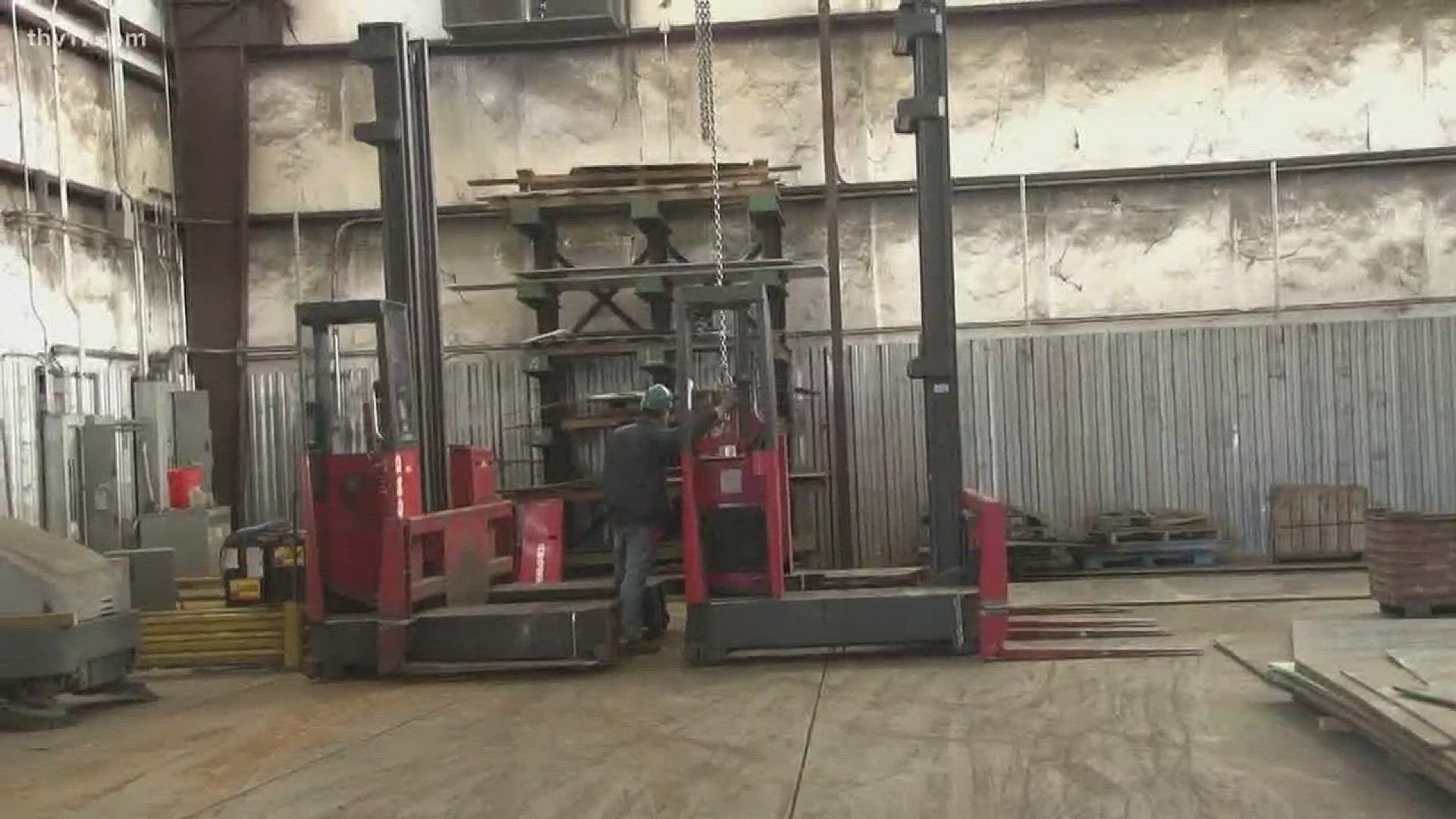ARK. (KTHV) - Tweets and statements by President Trump are the latest signs a trade war could be coming to the country.
Arkansas is at an intersection when it comes to proposed steel and aluminum tariffs. The state has a growing steel manufacturing sector in the northeast region, but a trade war could mean trouble for other parts of the state's economy, in places like Boyd Metals in Fort Smith and Little Rock or Reynolds Continuous Rolling Plant outside Hot Springs.
“Basically if you think of a lumber yard we're like that for steel,” said Jon Kennon, the corporate sales manager for Boyd Metal as he tours through the company’s Little Rock warehouse. “We have steel long products like angle channel, tubing. We also have plate. We do plasma cutting. We do saw cutting.”
The surging economy has seen demand rise for all those steel products, but now that President Trump appears set to fulfill a campaign promise, there's uncertainty and caution among industry leaders.
“Arkansas is in kind of a unique position in how this is going to play out,” said Mike Preston, the Executive Director of the Arkansas Economic Development Commission.
“We're cautious on this because it's a new tariff and a new thing and we want to make sure we're evaluating and Arkansas companies aren't affected in a negative way.”
Preston leads a commission that has worked hard over the past 10 years to turn Mississippi County into a steel manufacturing mecca. Nucor Steel and Big River Steel are doing well and bringing jobs to the flat, rural area, but Preston and others have their eyes beyond the big plants.
“This benefits them in a way,” he said. “But you have to realize we have foreign-owned companies that do import steel and it's going to affect them in a negative way.”
Boyd has been stocking up on products for months in anticipation of the tariffs. Prices are already rising for the goods they sell – most of it American-made. But questions remain for what comes next and what it will all mean for industries beyond steel and aluminum.
“What that's going to do to us is it's going to raise our price, raise our costs,” Kennan said. “Demand's going to go way up.”
The basics of supply-and-demand will mean those costs will get passed along to consumers eventually, because consumers are the end-level customers of Boyd Metals' customers. Those economic basics are good for some jobs, but might be an anchor elsewhere, especially if tariffs draw a response from countries like China, Mexico and Canada.
“It makes me a little nervous about a retaliation from China where one of the first things they could go after is agriculture,” Preston said.
“Agriculture represents 20% of the economy of Arkansas, so it's big, big, big,” said Kevin McGilton, the V.P. of government affairs for Riceland. “If there's some retaliation, we definitely could see that commodities, especially commodities grown here in east Arkansas could be affected.”
That could turn a trade war into a civil war between local farmers and local workers, but for now, experts will just focus a wary eye on Washington's plans.
“We're going to look to find a resolution to make sure that we're supporting American jobs and supporting Arkansas job,’ said Preston.

